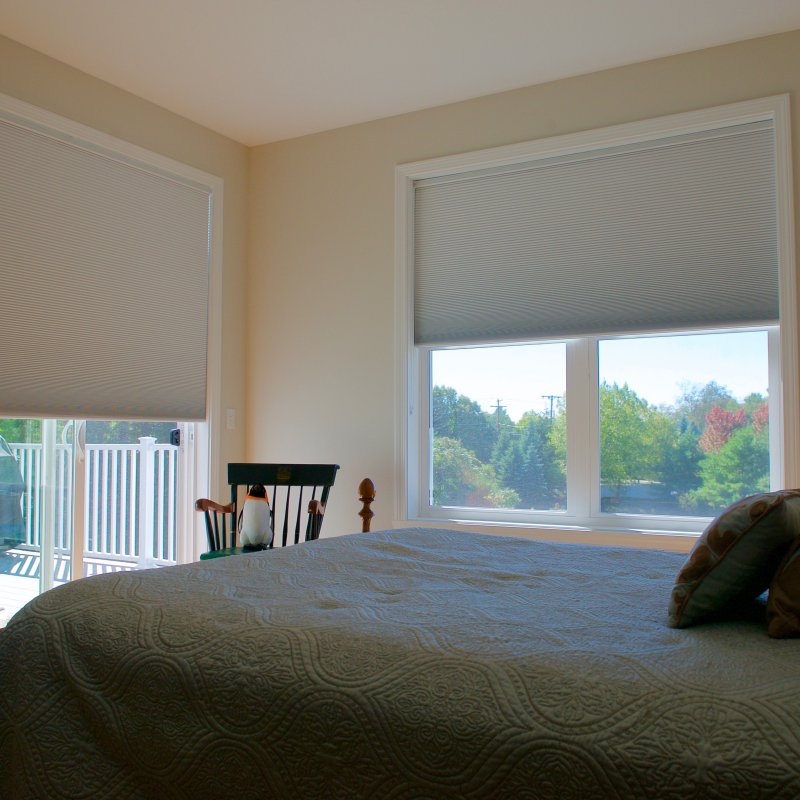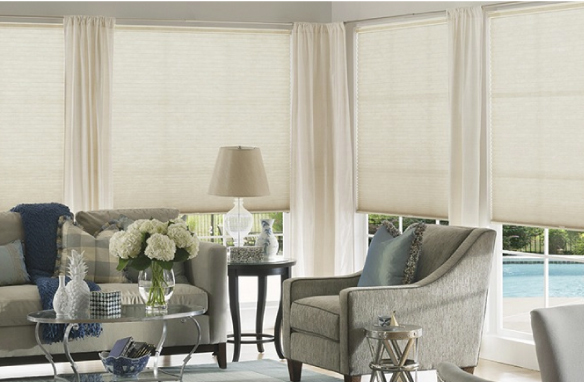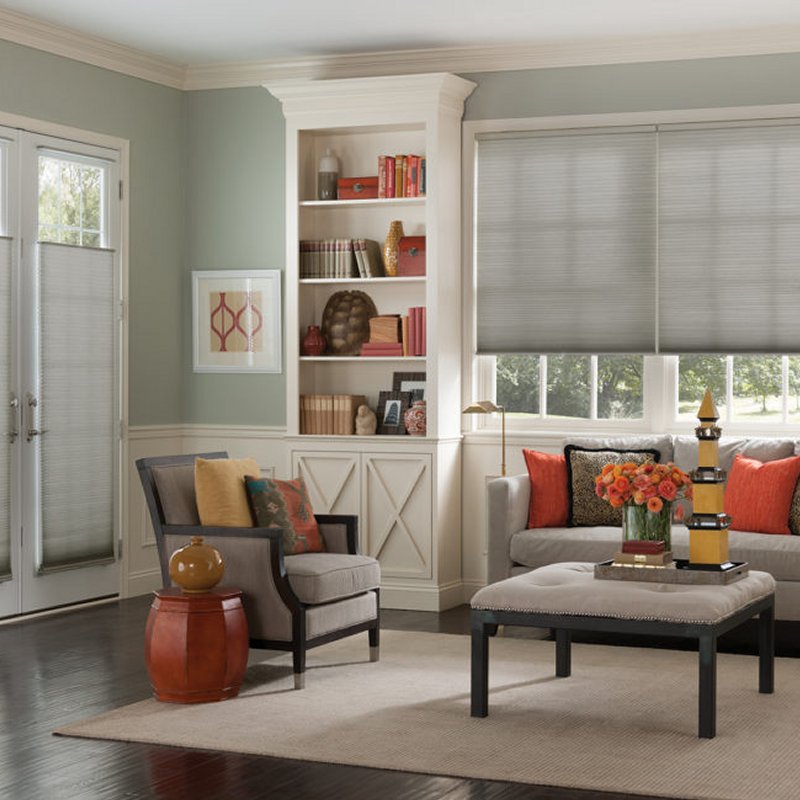When choosing window shades for your home, you’re guaranteed to run into the choice between blackout and light-filtering fabric. So, which should you choose? This is where the choice becomes even more difficult for some– there’s no right answer. However, there are factors to take into consideration so that you can make the best choice for your space.
Below, we’ll dive into the differences between blackout and light-filtering shades to help you make an informed decision.
Blackout Shades

As their primary purpose is to block out light, blackout shades are an ideal choice for spaces such as bedrooms, nurseries, media rooms, and the like. Here’s why they might be the right choice for you:
- Sleep Quality: Blackout shades are a boon for anyone requiring (near) total darkness to sleep, particularly for those who work night shifts, parents of young children, or those who have trouble falling (and staying) asleep on a regular basis.
- Energy Efficiency: Because they block out the sun, shades featuring blackout fabric are likely to provide excellent insulation, keeping your space warmer in the winter and cooler in the summer. However, the amount of insulation provided by your shades depends on its overall style. For example, cellular shades are designed to trap air in distinct pockets or cells. Thus, cellular shades featuring blackout fabric would be highly insulating.
- Privacy: Because of its opaque fabric, blackout shades offer complete privacy from those on the other side of your window.
However, on the flip side, blackout shades can make a room feel closed off and might not be suitable for spaces where you want natural light during the day.
Light-filtering Shades

Unlike blackout shades, light-filtering shades don’t shut out daylight completely, but soften and diffuse sunlight to eliminate glare and create a cozy atmosphere.
Here’s why they could be the best choice for your space:
- Ambiance: Light-filtering shades cast a gentle glow, perfect for living rooms or dining areas where you might want natural light without the harshness.
- Versatility: They come in various opacities, allowing you to choose how much light you want to filter in.
- Protection: These shades help protect furniture and floors from fading by blocking harmful UV rays.
However, light-filtering shades might not be suitable for those who are light-sensitive when sleeping or for rooms where glare can be an issue, like home offices.
Styles of Window Shade

As mentioned above, blackout and light-filtering shades are the type of fabric attached to the shade, not the style of shade itself. The below styles of shades are available featuring either blackout or light-filtering fabric:
- Cellular Shades: Known for their energy-efficient design, cellular shades are characterized by their honeycomb-shaped cells that trap air, providing insulation and helping to regulate indoor temperatures.
- Roller Shades: Roller shades feature a simple, streamlined design where a single piece of fabric or material rolls up onto a tube, making them sleek, compact, and easy to operate.
- Skylight Shades: Designed for skylights, these shades are used to control light and heat from overhead windows, often featuring retractable designs or fitted covers.
FAQs About Light-Filtering and Room-Darkening Shades
Q: What’s the difference between light-filtering and room-darkening shades, and which is better for each room?
A: Light-filtering shades gently diffuse sunlight, allowing natural light to enter while offering moderate privacy. They’re great for common areas like kitchens, dining rooms, and home offices. Room-darkening shades block more light (though not completely), making them ideal for areas like media rooms or bedrooms where you want reduced glare and more privacy. The best choice depends on how much light control and privacy you want in each space.
Q: Should I choose light-filtering or room-darkening shades for the bedroom?
A: For most bedrooms, room-darkening shades are the preferred option. They block a significant amount of light, helping to create a great environment for sleep— especially helpful if you’re sensitive to light or need to sleep during the day. However, if you prefer to wake up with natural light, light-filtering shades may be a better fit.
Q: Can people see inside my home if I have light-filtering shades?
A: Light-filtering shades offer privacy during the day by obscuring direct views into your home while still letting light in. However, at night—especially when indoor lights are on—light-filtering shades may allow silhouettes or some visibility from outside. For full nighttime privacy, consider layering them with drapes or choosing a room-darkening or blackout option.
Q: Do light-filtering shades help keep heat out?
A: They can, but this depends on the style of shade (roller vs. cellular). For more on this topic, check out our guide to roller vs. cellular shades.
Blackout and light-filtering shades serve different purposes, and the right choice for your space depends on your lifestyle, room function, and personal preference. For questions about which fabric choice and style of shade is right for you, be sure to get in touch with one of our Shade Gurus.
